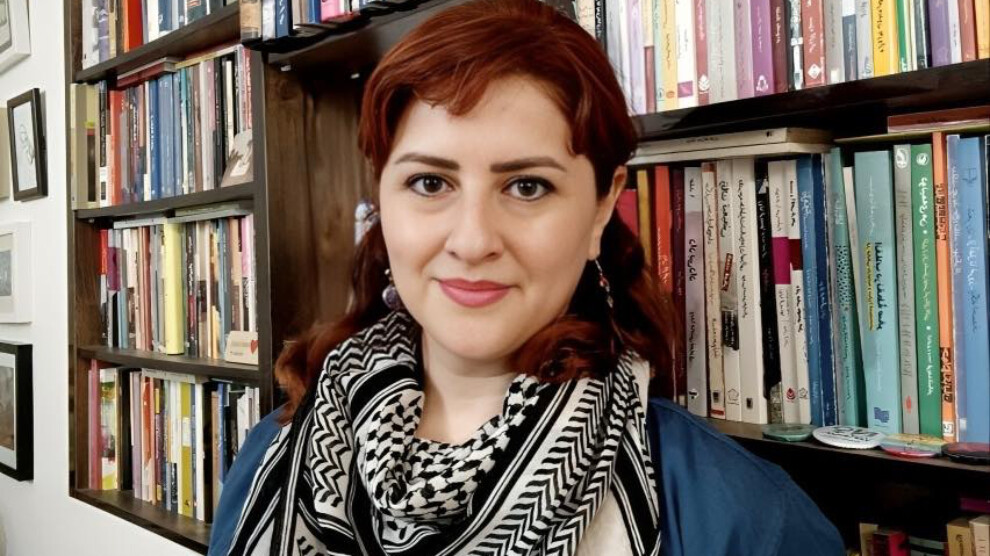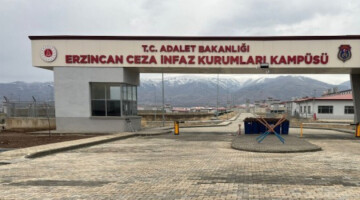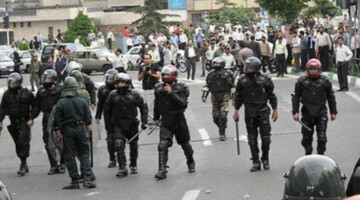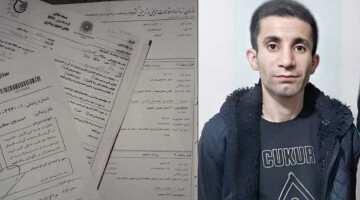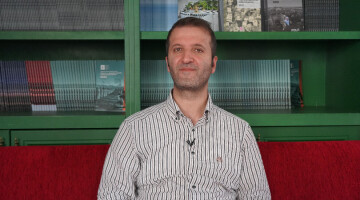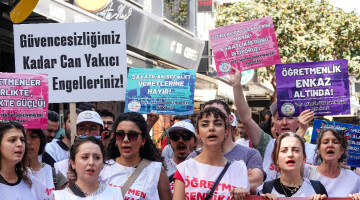Zhina Modares Gorji, a Kurdish journalist and prominent women’s rights activist, remains imprisoned eight months into a 16-month sentence, with only one period of leave granted since the start of her imprisonment, the Kurdistan Human Rights Network (KHRN) reported.
Gorji is being held in the women’s prison in Sanandaj, Kurdistan Province, located within the city’s Juvenile Detention Centre, which lacks a designated ward for political prisoners and offers no rehabilitation programmes, workshops, or sports facilities.
According to KHRN, conditions at the facility are particularly harsh for female inmates, who have limited access to the outdoors and strict controls on telephone use. Currently, approximately 50 women are held in the prison.
Women political prisoners face heightened surveillance, including the monitoring of their phone calls and bans on certain books, even those with official publication licences that cover political or social topics.
Modares Gorji is among a number of Kurdish political prisoners held at the prison. Others include Srwa Pour-Mohammadi, a Kurdish language teacher and board member of the Nozhin Socio-Cultural Association.
On 2 November 2024, Modares Gorji reported to the Sanandaj Judiciary’s Office for the Enforcement of Sentences to begin her prison term. A group of civil rights activists gathered outside the court in solidarity.
That same morning, she posted on Instagram: “Today I am going to a prison where the margins and discrimination are tripled – Sanandaj Women’s Prison. Marginalisation and discrimination based on gender, class and nationality. But when I packed my things for the prison, the first thing I put in my bag was hope. I am going there with my hope.”
Gorji had previously spent four months in detention following two arrests, one in September 2022 and one in April 2023.
A month into her sentence, Modares Gorji faced new charges of “spreading falsehoods” in Sanandaj Criminal Court, which then determined that the charges were based on the same material that had led to her initial conviction by the Islamic Revolutionary Court, and dismissed the case.
Her repeated requests for furlough have largely been denied, with only one instance granted in May 2025, when she was released for two weeks.
A separate request for conditional release under electronic monitoring was rejected following interference by the Ministry of Intelligence in Sanandaj.
Including the time previously spent in detention, Modares Gorji has now served a full year of her 16-month sentence.
The Kurdistan Human Rights Network reported that, in recent months, the Ministry of Intelligence in Sanandaj has been producing a documentary aimed at discrediting several Kurdish political prisoners and activists, including Modares Gorji.
Background
Modares Gorji, a journalist and a prominent veteran activist of the women’s movement in Kurdistan and Iran, was first beaten and arrested during the anti-government uprising of Women, Life, Freedom in Sanandaj on 21 September 2022.
After 42 days, she was provisionally released on 1 November 2022 on bail of 1 billion Iranian rials – nearly 2,000 USD, which was later increased to 10 billion rials after new charges were brought against her.
She was arrested a second time by security forces on 10 April 2023, and after 84 days was temporarily released from the women’s ward of the Juvenile Detention Centre of Sanandaj on 3 July 2023 on a hefty bail of 50 billion rials.
She spent the first month of her detention in solitary confinement under harsh conditions.
Between her two arrests, she was constantly under pressure and surveillance by security agencies and the judiciary.
In April 2024, the Sanandaj Municipality’s police in charge of supervising public facilities and locations also sealed off her bookstore, Zhira, for several days on the pretext of “failing to observe Islamic hijab.”
The first court session to address the charges against the Kurdish women’s rights activist was held on 12 February 2023, in Branch One of the Islamic Revolutionary Court in Sanandaj, presided over by Judge Akbari, the second session was held on 13 September 2023, in the same court presided over by Judge Saeidi, and the third session was held on 9 April 2024, presided over by Judge Karami.
In May 2024, Branch One of the Islamic Revolutionary Court in Sanandaj sentenced Modares Gorji to 21 years in prison, including 10 years for “forming an illegal group with the aim of overthrowing the state”, 10 years for “collaborating with hostile groups and states” and one year for “propaganda against the state”.
According to the verdict, the charges stemmed from her alleged activities, including “establishing the Zhivano Association with a feminist ideology aimed at overthrowing the state”, “participating in gatherings and chanting subversive slogans”, “maintaining contacts with anti-revolutionary elements”, “attending international educational conferences and workshops”, and “publishing materials in cyberspace and giving interviews to foreign media to negatively portray the country and create unrest following the death of Mahsa Amini”.
The Islamic Revolutionary Court had based its decision on reports from the Ministry of Intelligence, citing “security risks” in serving her sentence in Sanandaj due to “the possibility of destructive security activities”, and ordered, under Article 513 of the Criminal Procedure Code, that she serve her sentence in Hamadan Prison instead.
Her sentence was later reviewed by the Court of Appeal, which revised the total sentence to 28 months and overturned the accompanying order of exile to Hamedan Prison.
According to the final verdict, Modares Gorji was acquitted of the charge of “collaborating with hostile groups and states” but convicted of “propaganda against the state”, for which she received one year of imprisonment, and “forming an illegal group with the aim of overthrowing the state”, for which she was sentenced to 16 months.
Under Article 134 of the Islamic Penal Code, which stipulates the implementation of the most severe of multiple sentences, only the 16-month prison term is enforceable.

